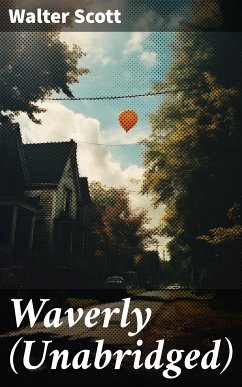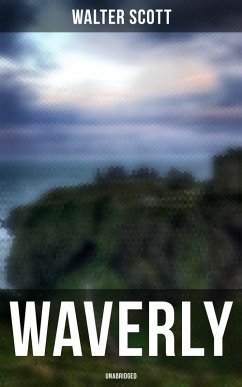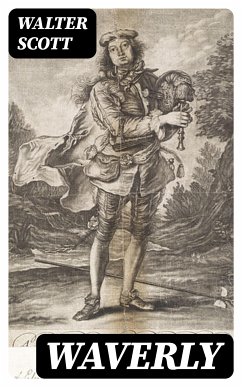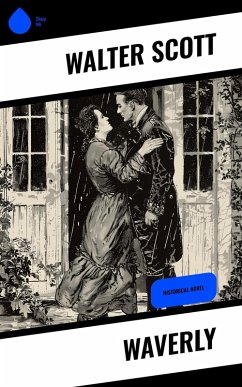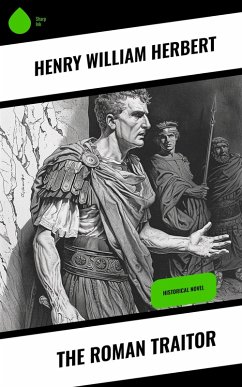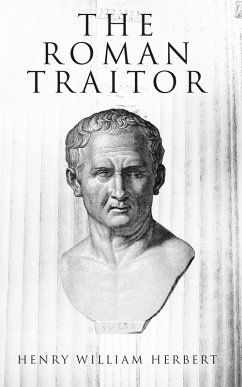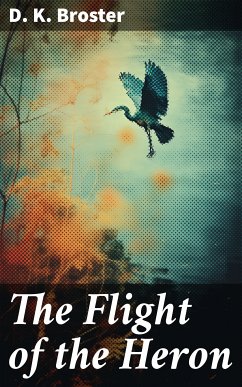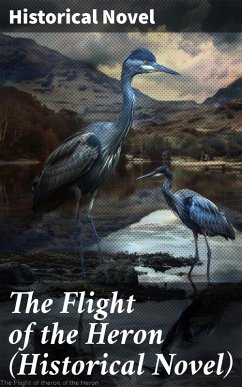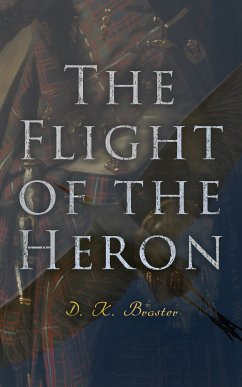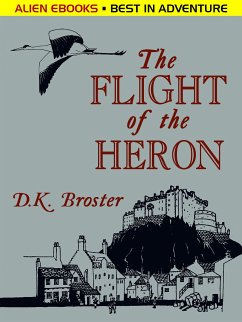
Waverly (eBook, ePUB)
Enriched edition. Historical Novel
Kommentar: Longford, Jeremy / Redaktion: Good Press

PAYBACK Punkte
0 °P sammeln!
In "Waverley," Walter Scott masterfully intertwines historical narrative with fictional elements, creating a rich tapestry that explores the Jacobite uprising of 1745. The novel employs a Romantic literary style, characterized by its vivid descriptions and deep psychological insight into its characters, particularly Edward Waverley, who becomes embroiled in the conflicts of loyalty and identity. Scott's meticulous attention to historical detail and cultural context allows readers a glimpse into the life and struggles in Scotland during a tumultuous period, positioning the work as a seminal pie...
In "Waverley," Walter Scott masterfully intertwines historical narrative with fictional elements, creating a rich tapestry that explores the Jacobite uprising of 1745. The novel employs a Romantic literary style, characterized by its vivid descriptions and deep psychological insight into its characters, particularly Edward Waverley, who becomes embroiled in the conflicts of loyalty and identity. Scott's meticulous attention to historical detail and cultural context allows readers a glimpse into the life and struggles in Scotland during a tumultuous period, positioning the work as a seminal piece in the historical novel genre. Walter Scott, often regarded as the father of the historical novel, drew inspiration from his own Scottish heritage and the vibrant folklore of his homeland. His profound cultural awareness and personal experiences as a border resident shaped his depiction of national identity and the complexity of allegiance during a time of political upheaval. Scott's literary career, steeped in the Romantic ethos, helped him reflect societal tensions, bridging the historical with the contemporary, while also seeking to revive Scottish themes in literature. "Waverley" is recommended for readers interested in a nuanced exploration of loyalty, culture, and the harsh realities of a nation at war with itself. Through Scott's compelling narrative and rich character development, readers are invited to not only understand but feel the passions of a people caught in the struggle for their identity. This novel remains an essential reading for anyone exploring the interplay of history and fiction. In this enriched edition, we have carefully created added value for your reading experience: - A succinct Introduction situates the work's timeless appeal and themes. - The Synopsis outlines the central plot, highlighting key developments without spoiling critical twists. - A detailed Historical Context immerses you in the era's events and influences that shaped the writing. - An Author Biography reveals milestones in the author's life, illuminating the personal insights behind the text. - A thorough Analysis dissects symbols, motifs, and character arcs to unearth underlying meanings. - Reflection questions prompt you to engage personally with the work's messages, connecting them to modern life. - Hand-picked Memorable Quotes shine a spotlight on moments of literary brilliance. - Interactive footnotes clarify unusual references, historical allusions, and archaic phrases for an effortless, more informed read.
Dieser Download kann aus rechtlichen Gründen nur mit Rechnungsadresse in A, B, BG, CY, CZ, D, DK, EW, E, FIN, F, GR, H, IRL, I, LT, L, LR, M, NL, PL, P, R, S, SLO, SK ausgeliefert werden.




